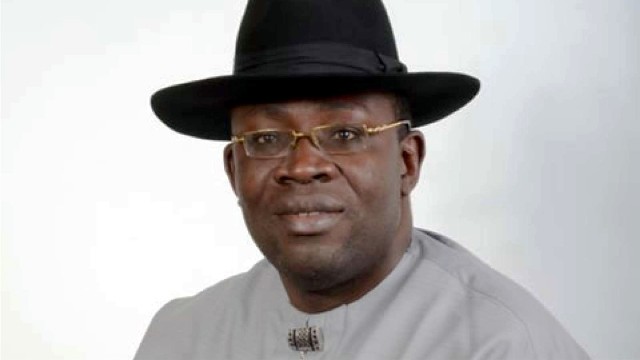Editorial
Attaining Stable Democracy

At a recent meeting with the Governor Seriake Dickson-led Peace and Reconciliation Committee of the Peoples Democratic Party (PDP), former President Goodluck Ebele Jonathan made touchy remarks that bordered on Nigerian politics and the development of the nation’s democracy.
During the meeting, Jonathan decried the scenario where most Nigerian politicians do not concede defeat at the polls even when it is obvious that such party or individual politician had lost the elections.
He affirmed that such development does not allow for a stable polity and sustainable democracy, and advised the factions within the PDP to sheathe their swords and work towards the enthronement of internal democracy in the party.
The Tide supports the view expressed by the former President, particularly when taken into consideration, the potent danger the do-or-die posture of politicians poses to our nascent democracy.
Nigeria is regarded as the giant of Africa, it therefore behoves on every citizen, particularly those in the driver’s seat to ensure that our democracy is sustained and stabilized for other sister nations in Africa to emulate. A situation where the growth of Nigeria’s democracy is rated lower than those of countries like Ghana, Benin Republic, Liberia, among other African nations should be a wake-up call to our political leaders.
We charge all stakeholders, including political parties, politicians, the Independent National Electoral Commission (INEC), security agencies, as well as the electorate to adhere strictly to the provisions of the laws guiding elections and politics in the country
The Tide believes that the trend where government engages in the constitution of electoral reform committees often made up of card-carrying members of the ruling party must be discontinued. In its stead, the Justice Muhammed Uwais Electoral Reform Panel report which was acclaimed to be the best should be revisited and consciously implemented to give a proper direction to the nation’s democratic reforms and development.
It is high time the executive arm of government distanced itself completely from the functions of other arms of government as dictated by the Constitution of the Federal Republic of Nigeria. The Independent National Electoral Commission (INEC) must be allowed to function as a truly independent electoral umpire devoid of any form of executive influence.
The judiciary, on its part, must stand tall to effectively discharge its duties in total defence of the rule of law. Justice must be dispensed speedily and without fear or favour. The rule of law must be sacrosanct and obeyed by all arms of government, before, during and after elections.
We also advocate the reintroduction of civic education as a subject in the curricular of primary and secondary levels of the nation’s education system to inculcate into the younger generations the virtue of civic responsibility and social values that can promote decency in the society.
Party leaderships and political gladiators on their part, should avoid imposition of candidates and allow internal democracy to take root in the political system. In that way, internal wranglings that commonly lead to long-term litigations can be avoided.
It is our position that if the rule of law is respected by all the players in the politics of the nation, Nigeria’s democracy will be well nurtured to stability and development so that Nigeria will not only be a shining example, but also revered amongst the committee of nations. Now is the right time and all hands must be on deck to make Nigeria’s democracy great.
Editorial
Beginning A New Dawn At RSNC

Editorial
Sustaining OBALGA’s Ban On Street Trading

Editorial
AFCON ’25: Bravo, Super Eagles, But…

-

 Sports2 days ago
Sports2 days ago2026 WC: Nigeria, DR Congo Awaits FIFA Verdict Today
-
Sports5 days ago
DG NIS Wants NSC Board Constituted, Seeks Increased In Funding
-

 Business5 days ago
Business5 days agoCustoms Seek Support To Curb Smuggling In Ogun
-

 Featured5 days ago
Featured5 days agoINEC Proposes N873.78bn For 2027 Elections, N171bn For 2026 Operations
-

 Sports5 days ago
Sports5 days agoSWAN Rivers Set-up Five Functional Committees
-
Sports5 days ago
NSC Disburses N200m Training Grants To 26 Athletes
-
Sports5 days ago
‘NTF Will Build On Davis Cup Success For Brighter Future’
-
News5 days ago
Police Bust Kidnapping Syndicate In PH

